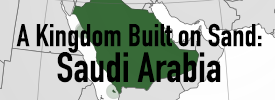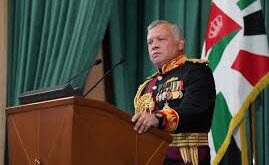Since the beginning of the Saudi-led coalition’s onslaught on Yemen, more than 6,000 people, half of which were civilians, have been killed.
In the continued bombing of Yemen, 119 air strikes have been conducted that have hit hospitals, schools and camps for the internally displaced persons and refugees.
As a result of this military campaign under the aegis of Saudi Arabia, a large percentage of Yemen’s population of 21 million have limited access to basic amenities like water. About 2.5 million people have been displaced.
Despite a UN-proposed peace deal doing the rounds today, an agreement acceptable to all the warring parties seems improbable in the foreseeable future.
The intervention by the Saudi-led coalition, which probably not least for its lack of success to date has now reportedly also been joined by Sunni jihadists, in violating international humanitarian law, has resulted in a civil war that has pushed an already impoverished Yemen back by several decades.
Peter Mauer, head of the International Committee of the Red Cross, after a visit to the country in August last year, accurately captured the grave humanitarian catastrophe: “Yemen after five months will look like Syria after five years.”
As a generation grows up witnessing the deliberate destruction of institutions of peace in Yemen, such as hospitals and schools, one can only hope that the war does not turn the young minds in a desperate, anguished state of mind.
Worse, the lure of terrorism might grip a hold of them. In war-torn Yemen, it lurks in every corner.
“They [Houthis] have started performing acts of vengeance that proved that they are just an armed group with no morals or values of the Quran or the forgiveness of the Quran,” Ali al-Bukhaiti, a former Yemeni Houthi leader, after having defected, asked the people of his country for forgiveness.
He revealed to Al Hadath channel that he was being fed “fabricated” information, and that the Houthis were killing prisoners of war. Who are the Houthis? Are the misdeeds of the Houthis today at par with those of the Saudi-led coalition in Yemen?
Western meddlers don’t improve things
Would the situation have been better in Yemen, as well as in other nations in the region, if Western powers had refrained from meddling in these nations’ internal politics? The situation in Yemen is another product born out of the disastrous consequences of military intervention and arming of rebels.
The Houthi factor
The Houthis, followers of a Shia sect – Zaidism – and descendents of the monarch who ruled Yemen before the republican state was established, now control large parts of the county, including the capital, Sana’a.
The Houthi movement essentially began as a response to the growing Salafist influence in the northern parts of Yemen.
Perceived largely as an Iranian proxy groupdeveloped along the lines of Hezbollah, the Houthis attracted the interest of Saudis when their President, Abd Rabbuh Mansur Hadi, sought asylum in Saudi Arabia after resigning from office in January 2015, after three years in power.
Hadi had replaced Ali Abdullah Saleh amidst demands made by the 16,000 Yemenis, who had taken to streets in protests emulating the Arab Spring that had seized pars of the Middle East in early 2011.
Since then, Yemen has featured sporadically on the United Nations Security Council’s agenda. Hadi’s defection to Riyadh, which incidentally came around the same time as the 29-year old Saudi Deputy Crown
Prince Mohammad bin Salman Al Saud’s appointment as the Minister of Defense, was perceived as a testament to the growing unrest in Yemen.
In a bid to reinstate the Hadi government in the nation, and to prevent the growth of Iranian influence in the region by weakening the Houthis, the young Salman ordered the launch of Operation Decisive Storm, which marked the beginning of a long, impulsive and costly war that continues to this day.
Looking at the Houthis merely for their apparent links with Iran and Hezbollah, instead of examining the deeper historical roots that the rebel group has had in Yemen, was a major fallacy on the part of the Saudis.
This has helped build a flawed narrative around the Yemen conflict that has been conveniently used by the House of Saud. It uses it to justify its military intervention in one of the poorest nations of the region.
The intervention, carried out by a coalition of nations including the UAE, Qatar, Egypt, Morocco, Jordan, Sudan, Kuwait and Bahrain has been spearheaded by the Saudis, with Israel being the latest nation to lend its support to the NATO-backed Saudi war.
Here we go again
American and British logistical, intelligence and military support to the Saudis, along with that of the Gulf nations, has transformed the Yemeni civil war into a protracted, international conflict.
The United States’ primary interest in Yemen stems from the presence of the Al-Qaeda’s deadliest franchise [Al-Qaeda in the Arab Peninsula/AQAP] in the country. Yet, as is so often the case then the United States makes its presumably “strategic” choices in local conflicts, the irony here is paramount:
The United States has committed itself to a war against the Houthis – even though they are a rare group deemed capable of fighting the AQAP and the ISIS.
One also has to wonder what role Saudi defense purchases play in all of this. They are certainly an undeniable, even though hard to prove factor whenever Western decision making ends up making common cause with the Saudis.
The inconvenient UN gets shafted again
The ill thought-out intervention that has overstepped Yemen’s legal system as well as that of the international community alarmingly faced no overt condemnation by the UN Security Council – the international body responsible for ensuring global peace and security.
Jamal Benomar, the UN Secretary General’s special envoy to Yemen, from March 2013 brokered a ten-month long National Dialogue Conference aimed at a peaceful negotiated settlement between the warring parties in Yemen.
After having warned against “systematic acts of obstruction” and “interference and coercion from outside forces,” Benomar resigned a month after the Saudis intervened militarily just when negotiations were nearing a peaceful conclusion in March 2015.
The UN has assumed the role of a voiceless spectator as the Saudis have gone about arming various anti-Houthi groups, thus repeating the blunders committed by the West in Libya and Syria.
That it is a regional power this time, and not a Western outside power that commits the blunder this time, doesn’t make it any more tolerable or acceptable.
Remember Libya and Syria
Libya and Syria are still reeling under the ramifications of the Western decision to arm rebels in those countries.
In a clear reflection of international power coalitions, but not the truth on the ground or in-country, UN Security Council Resolution 2216, aimed at the conflict in Yemen, singled out the Houthis, but made no mention of the Saudis or the international coalition responsible for the widespread chaos and destruction in the nation.
That serious alteration of the historical record may be convenient for those who executed this maneuver, but their diplomatic success does not absolve of making a mockery of the truth.
A cynical move
The UN went so far as to welcome humanitarian aid offered to Yemen by the King Salman Humanitarian Aid and Relief Centre, reaffirming its kid glove treatment of the Saudis.
This is especially galling considering that a leaked UN report earlier this year confirmed the “widespread and systematic” targeting of civilians by the Saudi coalition.
More recently, the removal of Saudi Arabia from a blacklist of nations responsible for the killing of children – even after official reports held Saudi responsible for 60% of child deaths in Yemen – following a demand by Riyadh, reveals the skewed handling of the Yemeni civil war by the international community.
It is very hard for the UN system to fulfill its purpose and function if the “powers that be” are so keen and unrelenting in resorting to such truth-altering mechanisms. That may assuage their conscience on the surface.
But since any such declarations aren’t worth the paper they are written upon, it is a lot of credulity to believe that they are of any substantive, never mind moral use.
Adapted from Perilous Interventions : The Security Council and the Politics of Chaos by Hardeep Singh Puri (Harper Collins India, August 31, 2016)
 Geostrategic Media Political Commentary, Analysis, Security, Defense
Geostrategic Media Political Commentary, Analysis, Security, Defense





